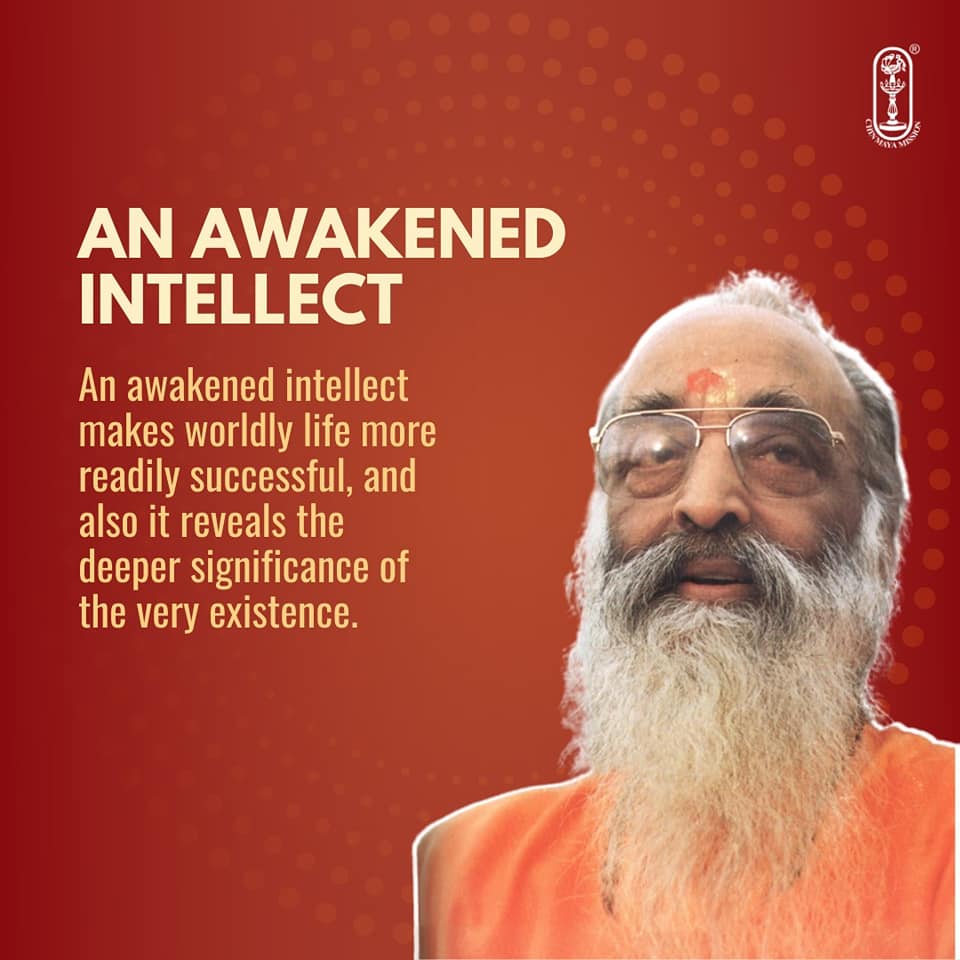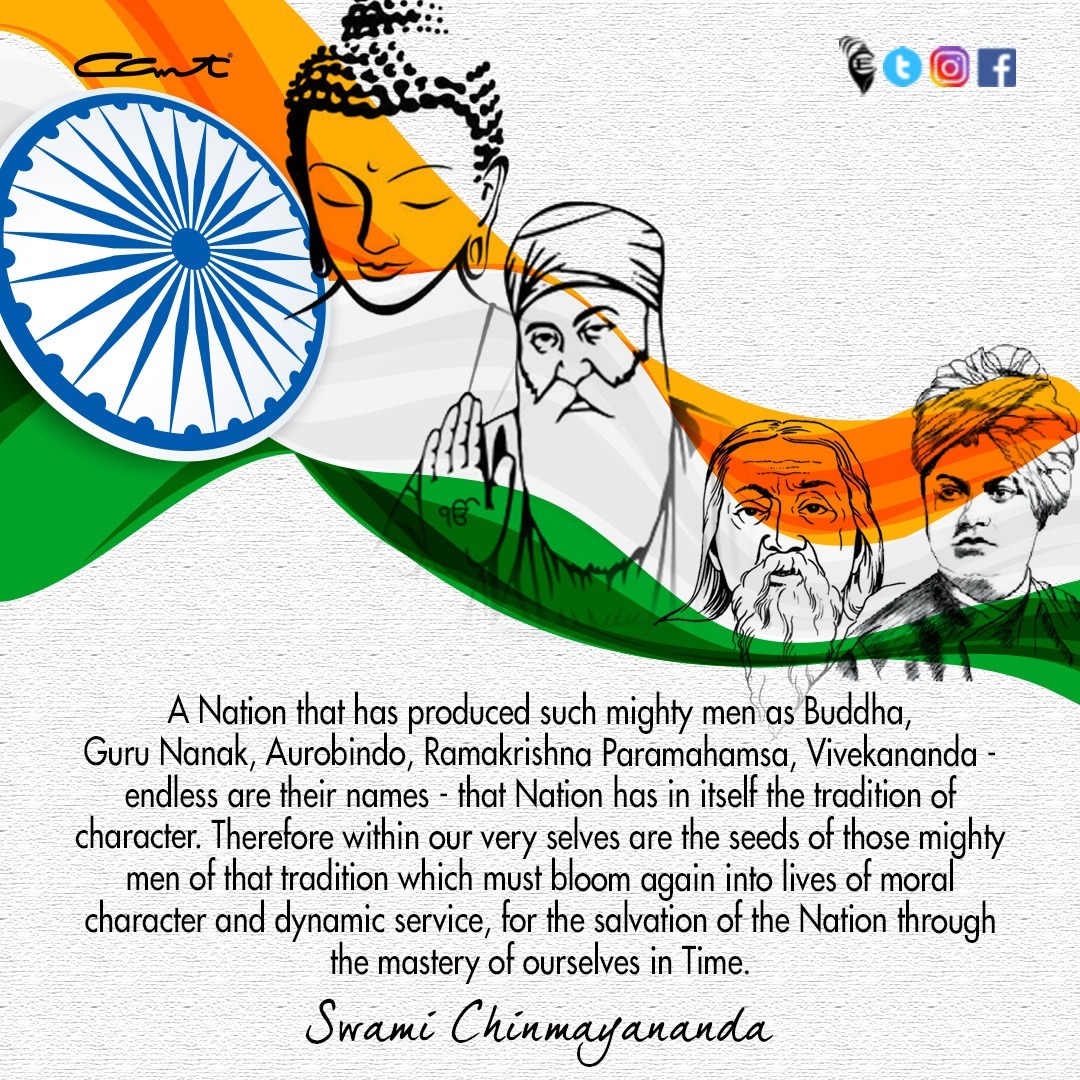Discourse 46: The Seventeenth Chapter Begins – Swami Krishnananda
=============================================================
==============================================================
1.#Opinion :Thursday, February 17, 2022. 06:00.2635.
Chapter-17. "The Threefold Character of Faith" -1
=============================================================
Ref -
CHILDREN IN BHARATHAM, ARE MISGUIDED BY INDISCIPLINE AND RUBBISH STUDENT ASSOCIATIONS AND STUDENT POLITICAL WINGS, ENDING IN LOSS OF CHARACTER! Elections in Bharatiya states are near, Here is chance to eliminate such demonic political parties from this Holy Earth!! : MEMBERS READ CAREFULLY, HERE THE TATTVAM/ESSENCE IS VERY STRONG, KEEP THIS TATTVAM IN YOUR MIND, IN THE NEXT EDITION YOU WILL FIND MORE OF THIS KIND"
-------------------------------------------------------------------------------------------------------------
All Members,
Respected family members of this great holy Nation.
REQUEST ALL STUDENTS, PARENTS AND TEACHERS MUST READ THIS TOPIC.
GIVE URGENT IMPORTANCE IN THE PRESENT SITUATION OF THE NATION
================================================================
Chapter-17. "The Threefold Character of Faith" -1
===============================================================
This word ‘shastra' went into the mind of Arjuna so strongly that it raised a doubt in his mind, which led to his question in the beginning of the Seventeenth Chapter.
17.1 :
arjuna uvacha
ye shastra-vidhim utsrijya yajante shraddhayanvitah
tesham nishtha tu ka krishna sattvam aho rajas tamah
Arjuna asks, “O Lord! Those who do not follow the injunctions of the scriptures but work with faith, what do You say about them?
Are they sattvic or rajasic or tamasic?
Under what category do they come?
Those who have intense faith and honestly do something without consulting scriptures—do You consider them as sattvic people?
Are they good people or bad people?
What is Your opinion?”
Arjun said: O Krishna, where do they stand who disregard the injunctions of the scriptures, but still worship with faith? Is their faith in the mode of goodness, passion, or ignorance?
This is a very moot question that is raised by Arjuna, to which Sri Krishna gives a very devious answer. We have to read the meaning between the lines to make out what exactly is intended in this answer because a direct answer to the question is not given. The consequence of a direct answer seems to be there in the verses that follow, and we have to draw our own conclusions as to what would be the direct answer by reading the verses which Sri Bhagavan speaks—śrībhagavānuvāca—that follow in answer to Arjuna's question.
------------------------------------------------------------------------------------------------------------
In the preceding chapter, Shree Krishna spoke of the differences between the divine and demoniac natures, to help Arjun understand the virtues that should be cultivated and personality traits that should be eradicated.
At the end of the chapter, he stated that one who disregards the injunctions of the scriptures, and instead foolishly follows the impulses of the body and the whims of the mind, will not achieve perfection, happiness, or freedom from the cycle of life and death. He thus recommended that people follow the guidance of the scriptures and act accordingly.
This instruction led to the present question. Arjun desires to know the nature of the faith of those who worship without reference to the Vedic scriptures. In particular, he wishes to understand the answer in terms of the three modes of material nature.
----------------------------------------------------------------------------------------------------------
17-2.
shri-bhagavan uvacha
tri-vidha bhavati shraddha dehinam sa svabhava-ja
sattviki rajasi chaiva tamasi cheti tam shrinu
Trividhā bhavati śraddhā (17.2):
“You said ‘faith'. You asked about people who have faith but do not consult scriptures. Well, I shall tell you something. You said there are people with faith, but what kind of faith? There is sattvic faith, rajasic faith and tamasic faith. Therefore, we cannot unilaterally make a statement about those people who have faith. We have also to consider what kind of faith it is that they have.”
Sāttvikī rājasī caiva tāmasī ceti tāṁ śṛṇu:
“Now listen to me. I shall tell you what is sattvic faith, what is rajasic faith, and what is tamasic faith. According to one's own nature, so does the faith arise in that person.”
---------------------------------------------------------------------------------------------------------------
Here a very direct answer is, to some extent, indicated.
There is no use of saying, “I have a faith in this thing and, therefore, everything must be all right.” It need not be all right even if we have faith in it, because our faith may be tamasic faith or rajasic faith.
It may not necessarily be the voice of what is sometimes called the inner conscience, which many people resort to and say, “My conscience says that and, therefore, I shall do it.” The tiger also has a conscience, the snake has a conscience, the scorpion has a conscience, the cannibal has a conscience, and a saint has a conscience.
Do we think all these consciences are the same? Hence, there is no use merely saying, “I have a conscience, and I shall act according to it.” Our conscience will work according to the characteristic of our nature. According to what kind of person we are, from that we can know what kind of faith we may develop and how our conscience works.
Therefore, we should not simply say, “My conscience says.” One may have a demoniacal conscience and, therefore, merely saying “my conscience works” is not enough.
Thus, to say that faith is predominant and, therefore, scripture is not necessary is also not a proper way of looking at things, because it all depends upon what kind of faith we are referring to—whether it is sattvic, rajasic or tamasic.
Depending on the character, the behaviour, the substance, and the very essence of a person, accordingly the sraddha, or the faith, is to be judged.
-----------------------------------------------------------------------------------------------------------
Nobody can be without faith, for it is an inseparable aspect of the human personality. Those who do not believe in the scriptures are also not bereft of faith. Their faith is reposed elsewhere. It could be on the logical ability of their intellect, or the perceptions of their senses, or the theories they have decided to believe in.
For example, when people say, “I do not believe in God because I cannot see him,” they do not have faith in God but they have faith in their eyes. Hence, they assume that if their eyes cannot see something, it probably does not exist. This is also a kind of faith. Others say, “I do not believe in the authenticity of the ancient scriptures.
Instead I accept the theories of modern science.” This is also a kind of faith, for we have seen in the last few centuries how theories of science keep getting amended and overthrown. It is possible that the present scientific theories we believe to be true may also be proved incorrect in the future.
Accepting them as truths is also a leap of faith. Prof. Charles H. Townes, Nobel Prize winner in Physics, expressed this very nicely: “Science itself requires faith. We don’t know if our logic is correct. I don’t know if you are there. You don’t know if I am here. We may just be imagining all this. I have a faith that the world is what it seems like, and thus I believe you are there. I can’t prove it from any fundamental point of view… Yet I have to accept a certain framework in which to operate. The idea that ‘religion is faith’ and ‘science is knowledge,’ I think, is quite wrong.
We scientists believe in the existence of the external world and the validity of our own logic. We feel quite comfortable about it. Nevertheless these are acts of faith. We can’t prove them.” Whether one is a material scientist, a social scientist, or a spiritual scientist, one cannot avoid the leap of faith required in the acceptance of knowledge. Shree Krishna now explains the reason why different people choose to place their faith in different places.
================================================================
Note : Beware -
1. You are following a wrong path even in your studies and educational career; and neither your parents, your government, your society nor your friends are good enough or intelligent enough to tell you what your problems are going to be when you become an adult!
2. "Here comes the need for a new type of education. You may call it Sanatana Dharmam."
3. THIS IS WHAT NOT HAPPENING IN THE MUSLIM WORLD, THEIR POISONOUS MADRASA EDUCATION, IS FUNDING HATRED, VIOLENCE, MENTAL DISTURBANCE, CREATING TROUBLES AMONG THEMSELVES AND OTHER COUNTRIES!!
Christianity violates all discipline, by by religious conversions and Church, cum evangelists, using the money, spreading lies, cheat the public all over the world,
4. Nature can suddenly burst a bomb on the head of all humanity, which she has been keeping secretly tucked under the arm to burst any time. The whole Earth can shake, and the matter ends there in one second!!
5. THE BREAKING INDIA FORCES CONGRESS AND COMMUNISTS ALONG WITH ALL REGIONAL POLITICAL PARTIES USE DEMONIC POLITICS; VOTE BANK POLITICS WITH MUSLIMS AND CHRISTIANS ASSOCIATED WITH ABOVE SAID POLITICAL COMBINATIONS TO DESTROY THIS HOLY NATION.
6.TO STOP THESE EVIL MOB IN THE PRESENT DAY, ONLY WAY TO IT BE RIGHTEOUS, TRUE TO ONE NATION AND ONE PEOPLE PRINCIPLE.
7. TODAY IN KERALA AS WELL AS OTHER PARTS OF THIS HOLY NATION, WHERE GREAT BRAHMA RISHIS, MAHARISHIS TOOK BIRTH AND GAVE US GREAT TEXTS, FOLLOWED BY GREAT ACHARYA SRI SWAMI ADI SANKARACHARYA AND MANY MORE BORN AND SUCCEEDED IN ESTABLISHING A STRONG SANATANA DHARMA THROUGH OUT BHARATHAM; BUT THE PRESENT POLITICAL SYSTEM NOT PREPARED TO FOLLOW THEIR TEXTS AND SERVE THIS NATION, NEED TO CHANGE THIS TENDENCY BY RENAISSANCE.
---------------------------------------------------------------------------------------------------------------
### Role of parents and teachers in a child's life :
------------------------------------------------------------------------------------------------------------
1.School, teachers and parents play vital role in holistic and the teacher is the second. Both have an immense contribution and responsibility in shaping child’s personality.
2.Role of parents : Parents are the child’s first role model. Children behave, react and imitate same as their parents. Parents play important role in encouraging and motivating their kids to learn. Good parental support helps child to be positive, healthy and good life long learner. Children acquire skills at the parent and teacher is a real secret of child’s happy learn very early stage of their life if the parents are responsive and development of the child. Parents are the first mentor of the child understanding.
3.Teacher-Parent Relationship :Trust and mutual understanding between. Support and Cooperativeness from parents towards teacher helps a lot to connect, understand and work towards child. Remarkable positive change is seen in a child if the parents and teacher understand and work hand in hand. A good parent teacher relationship leads child to be positive towards attending school.
-------------------------------------------------------------------------------------------------------------
##### National Code Of Conduct For The Citizens Of Holy Bharatham : Swami Sivananda.
-------------------------------------------------------------------------------------------------------------
1. Patriotism: Our Motherland should be our first and highest consideration. Welfare of the nation is our own welfare. Therefore, let us willingly be ready to offer up even our own life for our country. Let us inculcate in our children and members of our family love for our country, the spirit of patriotism and service to our country and our fellow citizens.
2. Duty: Our first and foremost duty is to God and to Righteousness. Leading a righteous life is the best and most valuable service of our Nation.
3. Character: Character is the greatest wealth. A pure, incorruptible citizen is the greatest asset of our Nation. This is vital and indispensable. Therefore, good character is to be given top priority value; upon this depends our nation’s welfare and its future stability.
4. Health: Health is the basis of success. Health is wealth. Next to character, it is the greatest national asset. As citizens, building up character and safeguarding health, should be our primary duty to the Nation.
5. Virtue: Let us join hand and eradicate the evils of gambling, liquor-drinking, drug-taking, tobacco-smoking and betel-chewing. Let us eradicate the evils of bribery, corruption, selfishness, immorality, dishonesty and misconduct. Disloyalty to our Nation is crime and unpardonable sin.
6. Public Property: O Citizen! We are custodian of public property. Let us not spoil, misuse, steal or destroy National property. Let us preserve it with love and care. Let us keep our country neat and clean. This is your sacred duty.
7. One Family: All our citizen are brethren. Let us feel this fraternity. Let us all love each other and one another and be united because, we are one family.
8. Religion: We must have equal reverence for all religions, creeds and faiths. Let us love as our own brother the followers of our faiths. Let us treat others as we wish to be treated by them.
9. Non-violence: At all cost avoid every type of violence and hatred for, this is a blot on the fair name of the Nation. It is soul-killing and cause great harm to our country’s welfare and development. It is totally opposed to our Nation’s ideal.
10. Economy: Let us adopt simple living and high thinking. Let us not be extravagant. Let us avoid waste. Let us practise frugality. Let us share what we have with our less fortunate fellow citizens. This is National virtue that our India needs today.
11. Law: Let us respect the rule of law and uphold social justice. In this lies the guarantee of our welfare and orderly progress towards better India.
12. Ahimsa: Non-injury is our highest virtue (Ahimsa Paramo Dharmah). Compassion is a divine quality. Protection of animals is our sacred duty. This is India’s special teaching. Let us be compassionate towards all creatures. Thus be a true Indian. Try to become an embodiment of kindness compassion and goodness in your every day life.
13. Ecology: Man and Nature are inseparable. Man and his natural environment are inter-related and mutually interdependent. Everything in Nature contributes to our protection and nourishment. Let us, therefore, protect our natural environment. Helping in maintaining the ecological balance is our duty. It is indispensable for our safe living and highest welfare. Polluting of public places and polluting of air and water of the country is a national crime. We must make amends of our past lapses.
14. Unity: The more united the people of a country, the greater is their ability to withstand all obstacles and dangers. United we stand, divided we fall. This is particularly true about today’s India. Therefore, let us live in close harmony and loving goodwill with all our countrymen. Love of our country means love of our countrymen. This is the most invaluable service a Citizen of India, can offer to our Motherland.
15. Education: The process of education should incorporate within it the imparting of the basic knowledge of India’s great culture, its lofty ideals and noble values and principles of living. Our education has to be oriented for enriching and enhancing the quality of life of our youth and students.
##THUS, SHINE AS A TRUE CITIZEN AND SERVE YOUR COUNTRY BEST, BY THE VERY MANNER OF YOUR LIFE AND CONDUCT.
================================================================
End.
JAI HIND
JAI BHARATHAM
VANDHE MADHARAM
BHARAT MATHA KI JAI.
===============================================================












Comments
Post a Comment